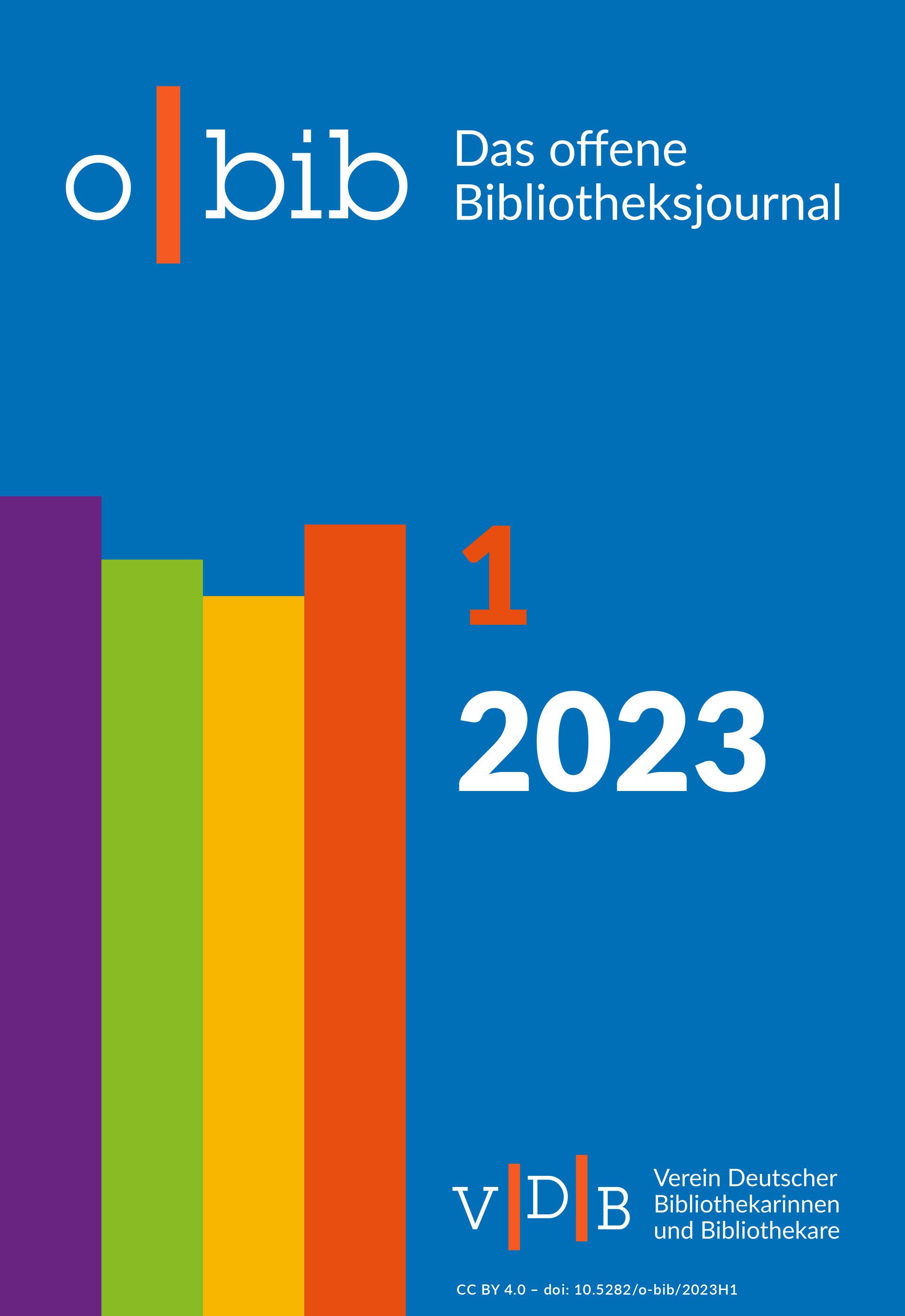Informationskompetenz gegen Fake Science
Wie steht es, was sagen die Beteiligten und welche Taktik ist nun gefordert?
DOI:
https://doi.org/10.5282/o-bib/5869Keywords:
Information literacy, Fake scienceAbstract
Three years after a very critical media coverage of predatory publishing (“science scandal”), the article analyses the activities of German libraries in terms of how they provide information about fake science and how they support scientists. This happens mainly in specific events which primarily reach those target groups that are already at least rudimentarily sensitized. The results of a survey among teaching librarians are presented, as to how they assess their skills in detecting fake science and how they see their role and the tasks of libraries in combating fake science. The article discusses best practice examples for promoting critical information literacy in libraries based on the information literacy framework, which goes far beyond teaching research skills.
References
Association of College and Research Libraries: Framework for Information Literacy for Higher Education, 2015, https://www.ala.org/acrl/standards/ilframework, Stand: 25.10.2022.
Bauer, Patrick; Krause, Till; Kropshofer, Katharina u.a: Das Scheingeschäft. Süddeutsche Zeitung Magazin, 20.07.2018.
Beall, Jeffrey: Criteria for Determining Predatory Open-Access Publishers, Denver, CO 22012, http://scholarlyoa.files.wordpress.com/2012/11/criteria-2012-2.pdf, Stand: 25.10.2022.
Deinzer, Gernot; Herb, Ulrich: Scheinverlage in der wissenschaftlichen Kommunikation. Verbreitung von Predatory Publishing und Lösungsansätze, in: ZfBB 67, 2020, S. 25–37. Online: https://doi.org/10.5283/epub.41686.
Diekmann, Andreas: Unehrliche Ehrlichkeitsforschung. Frankfurter Allgemeine Zeitung, 08.09.2021.
Gebhardt, Karoline: Fake Science – welchen Beitrag können Bibliotheken bei der Enttarnung leisten? In: BuB 74 (1), 2022, S. 51–53.
Ginther, Clara, Lackner, Karin: Predatory Publishing - Herausforderung für Wissenschaftler/innen und Bibliotheken, in: o-bib. Das offene Bibliotheksjournal 6 (2), 2019, S. 17–32, https://doi.org/10.5282/o-bib/2019H2S17-32.
Grudniewicz, Agnes; Moher, David; Cobey, Kelly D. u.a.: Predatory journals. No Definition, No Defence, in: Nature 576, 2019, S. 210–212. Online: https://doi.org/10.1038/d41586-019-03759-y.
Schmidt, Christian: Fake Science … - … und was Bibliotheken dagegen tun können, in: BuB 71 (4), 2019, S. 212–215. Online: https://nbn-resolving.org/urn:nbn:de:0290-opus4-168032.
Shen, Cenyu; Björk, Bo-Christer: ‘Predatory’ open access: a longitudinal study of article volumes and market characteristic, in: BMC Medicine 13 (230), 2015, https://doi.org/10.1186/s12916-015-0469-2.
Shu, Lisa; Mazar, Nina; Gino, Francesca; Ariely, Dan; Bazerman, Max: Signing at the beginning makes ethics salient and decreases dishonest self-reports in comparison to signing at the end, in: PNAS 109 (38), 2012, 15197-15200. Online: https://doi.org/10.1073/pnas.1209746109.
Zemanek, Michaela: Was hat die Wahl des Jokers in der Millionenshow mit Informationskompetenz zu tun? Das Framework der ACRL in der Vermittlung von Informationskompetenz, in: o-bib. Das offene Bibliotheksjournal 8 (2), 2021, https://doi.org/10.5282/o-bib/5653.
Ziem, Sebastian: Fake Science als Thema in Öffentlichen Bibliotheken, in: BuB 74 (2/3), 2022, S. 68–71.
Downloads
Published
Issue
Section
License
Copyright (c) 2023 Fabian Franke

This work is licensed under a Creative Commons Attribution 4.0 International License.





